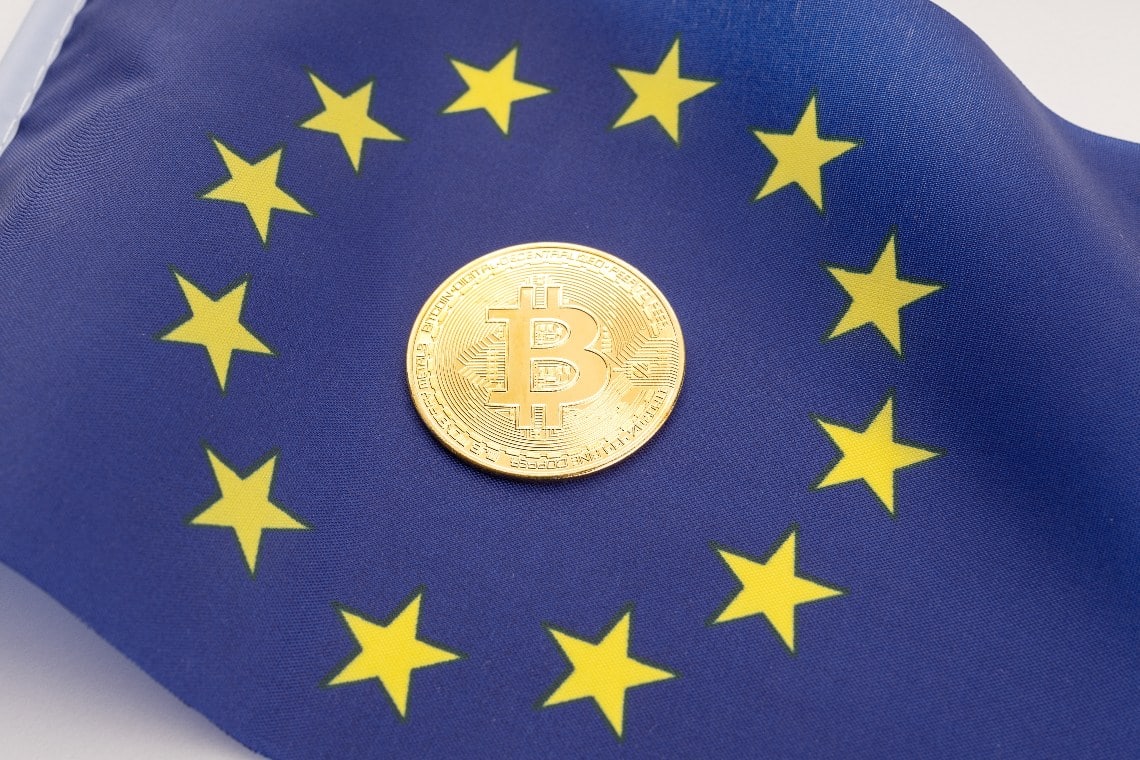The Council of the European Union (EU) and representatives of the European Parliament have reached a fundamental agreement for the crypto sector and the protagonist will be the German city of Frankfurt.
The decision is linked to the establishment of a new European authority dedicated to fighting money laundering and terrorism financing.
This authority, known as AMLA (Anti-Money Laundering Authority), is ready to play a fundamental role in supervising various sectors, including the increasingly important one of cryptocurrencies.
The announcement of Frankfurt, in Germany, as the location of the AMLA marks a crucial milestone in the EU’s ongoing efforts to strengthen its regulatory framework in the face of the evolving financial landscape.
Summary
EU efforts to regulate the crypto sector: Frankfurt will be the seat of AMLA
The mandate of AMLA transcends conventional boundaries, reflecting the contemporary challenges posed by rapid technological advancements and the proliferation of digital assets.
With a staff expected to exceed 400 units, AMLA aims to start operations by the middle of next year, signaling a quick response to the pressing need for increased regulatory oversight.
To underline its importance, a recent press release has defined AMLA as “the cornerstone of the EU’s anti-money laundering reform”, emphasizing the seriousness of its role in safeguarding the integrity of the European financial ecosystem.
Mairead McGuinness, European Commissioner for Financial Stability, Financial Services and Capital Markets Union, has expressed readiness to undertake the mission of the AMLA at the earliest opportunity.
Speaking at a press conference, McGuinness stated that the authority is ready to start its operations as soon as possible. In particular, McGuinness emphasized the imperative of mitigating the risks associated with large cash transactions, citing the implementation of a 10,000 euro limit at the European level.
In addition, McGuinness highlighted AMLA’s proactive stance in addressing the challenges posed by cryptocurrencies and the anonymity they offer, noting a concerted effort to adapt regulatory frameworks to the evolving financial landscape.
The decision to establish the seat of AMLA in Frankfurt is in line with broader initiatives aimed at strengthening the EU regulatory framework in response to emerging threats. It follows a series of strategic measures, including the revision of EU rules on fund transfers to facilitate the traceability of cryptocurrency transactions.
Furthermore, the block has recently introduced the framework for the markets of crypto assets (Markets in Crypto Assets, MiCA), signaling its commitment to promote a regulatory environment favorable to innovation, while also supporting strong guarantees against illicit financial activities.
The importance of an anti-money laundering authority
In a context of growing concerns related to money laundering and terrorism financing, the mandate of AMLA assumes greater importance. By taking on a central role in supervising the cryptocurrency sector, AMLA seeks to address the inherent challenges posed by the decentralized nature of digital assets and the anonymity they offer.
As cryptocurrencies are increasingly being exploited as a means for illicit activities, the need for comprehensive regulatory oversight has become imperative. The establishment of the AMLA represents a proactive response to this pressing imperative, highlighting the EU’s willingness to tackle evolving threats head-on.
The choice of Frankfurt as the location for AMLA has a strategic significance, as it leverages the city’s stature as a financial hub with a solid regulatory framework.
Renowned for its economic dynamism and regulatory expertise, Frankfurt offers an optimal environment for AMLA to effectively carry out its mandate. Furthermore, the city’s central location in Europe enhances accessibility and facilitates collaboration with the region’s key stakeholders.
The establishment of AMLA in Frankfurt is able to catalyze synergies with regulatory bodies and existing financial institutions, promoting a collaborative ecosystem oriented towards fighting financial crime.
By leveraging the institutional infrastructure and expertise of Frankfurt, the AMLA can enhance its monitoring and regulatory capabilities in the cryptocurrency sector, thus mitigating the risks associated with illicit financial activities.
Furthermore, the choice of Frankfurt underlines the commitment of the EU to promote a cohesive regulatory framework that transcends national borders. By centralizing the operations of the AMLA in Frankfurt, the EU aims to streamline regulatory efforts and improve coordination among Member States, promoting a unified approach to combating money laundering and terrorism financing.
Conclusions
In conclusion, the choice of Frankfurt as the location for the new EU Anti-Money Laundering Authority (AMLA) marks a fundamental step towards strengthening European defenses against illicit financial activities, particularly in the booming cryptocurrency sector. With AMLA ready to take on a central role in monitoring and regulating the cryptocurrency sector, the designation of Frankfurt underscores the EU’s commitment to promoting a cohesive regulatory framework capable of addressing evolving threats.
By leveraging Frankfurt’s status as a financial hub and regulatory expertise, AMLA is well positioned to carry out its mandate effectively, mitigating risks and enhancing surveillance throughout the region. Additionally, Frankfurt’s central location facilitates collaboration with key stakeholders, promoting a collaborative ecosystem focused on combating financial crime.
The establishment of AMLA in Frankfurt represents a proactive response to the challenges posed by money laundering and terrorism financing, reaffirming the EU’s commitment to supporting the integrity and stability of its financial markets. With the start of AMLA’s activities, its presence in Frankfurt promises to catalyze synergies and promote a unified approach to safeguarding the European financial ecosystem.




